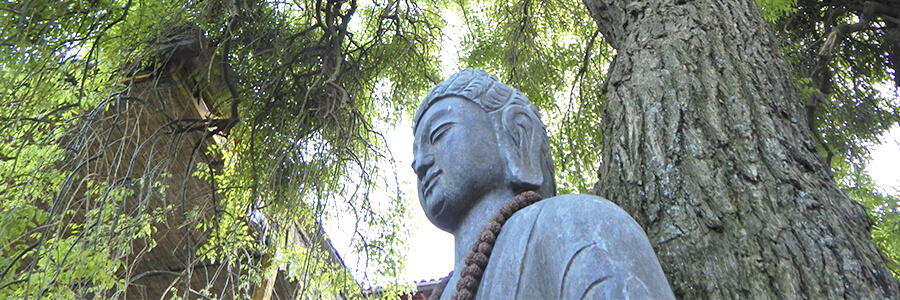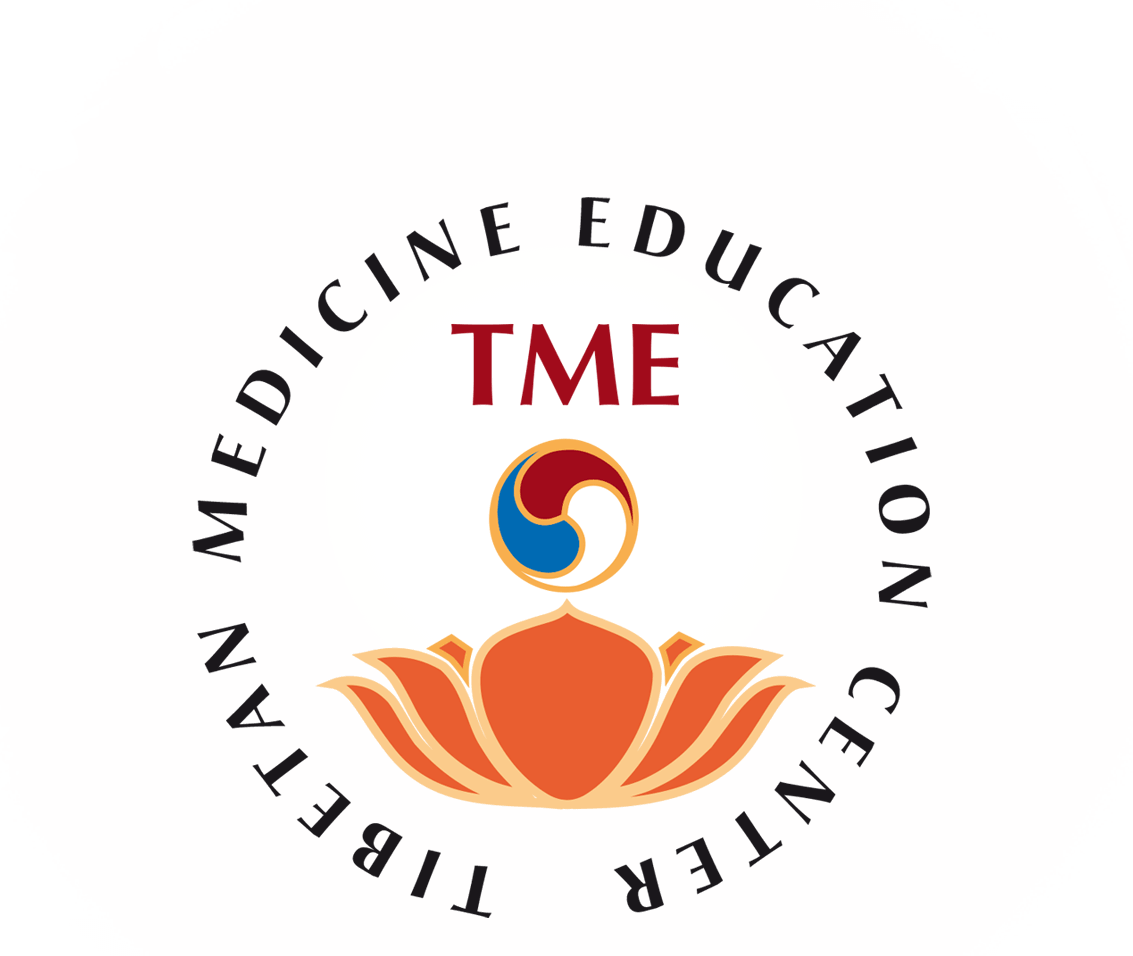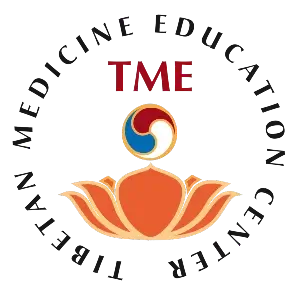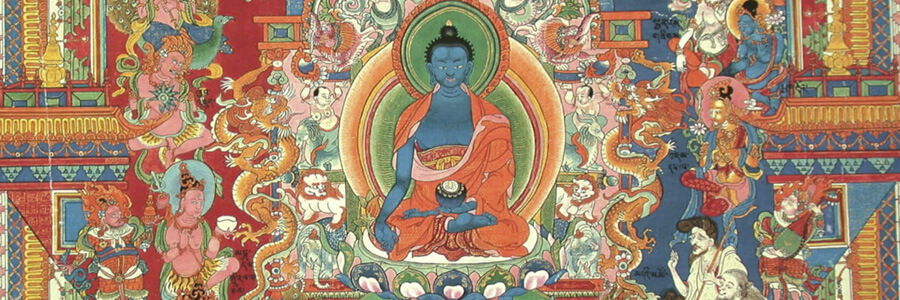Medicine Buddha Healing Practices
The value of retreats

By Carolyn Chan
A retreat is a period of time where we may “withdraw” from everyday life in order to better focus on a particular activity or objective. Spiritual retreats have been known for centuries, and remain an integral part of many religious traditions, where the time may be used in reflection, prayer and meditation in order to “re-connect”. For Buddhists, the importance of spiritual retreats cannot be overemphasized.
It is my first day back at work after being away for two weeks on a retreat. I am the “flavor of the day” as friends and colleagues, naturally curious to hear about my holiday, come by to welcome me back, along with a barrage of questions, especially, “where did you go?” followed by, “what did you do there?” Some ears perk up when they hear I have been on retreat, while by the facial responses of others that range from polite to perplexed, I read their common question: why spend precious vacation days on activities that are not “fun”?
I show pictures and attempt to describe the beauty of the Swiss mountain hamlet where the retreat center is located, the river and waterfall, surrounding slopes and sunny meadows brimming with wildflowers, the clanking bells of happy cows grazing in the sunshine. I don’t want to tell them that the past two weeks have not been “fun” by any measure. Waking up while still dark to get to the first session at 5 a.m., and with the last session often ending after 9 p.m., makes for very long days. The days that include cooking and cleaning duties are even longer. No 5-star accommodations here either, instead shared bedroom and bathroom facilities, and a restricted diet to boot. Who wants to hear about these things?
So, why do I willingly make the trek halfway across the world every year to participate in what sounds more like a boot camp than a holiday, that few people care to hear about afterwards? There is some consolation knowing that I am not alone, that each year thousands of people choose to spend precious vacation time going on organized retreats in groups or solo, rather than traditional holidays based on leisure and pleasurable activities that may or may not include travel. The last two decades have seen tremendous growth in organized special interest holidays, e.g. Celebrity chef cooking cruises and tours, Wine enthusiast tours of the California or French winegrowing regions, Birdwatching in every country imaginable, outdoor or indoor sports enthusiast holidays, museum enthusiast holidays, the list is endless. Retreats are perhaps a category of special interest holidays with spiritual retreats being but a small subset. The difference is that I don’t consider myself on holiday when I am on retreat. I am working harder than ever!
Medicine Buddha retreats are rare in the west, however they remain precious to Buddhists and are of special importance and significance to practitioners of Tibetan medicine. Each year, at the appointed Medicine Buddha retreat place, date and time, the sangha gathers, to practice, learn, and be guided on the spiritual path. The first few mornings my jet-lagged body says “No” when my phone chimes the 4.30 a.m. wakeup alarm. If I were at home I would roll over and go back to sleep, but this is not home and I must show up on time to support the other sangha members. It is not easy adhering to the daily schedule at first, my undisciplined mind wants to be hiking through the meadows or wading in the cool river looking for stones, plus my allergies to the surrounding greenery act up, another distraction. The Master leading the retreat, our beloved teacher Dr. Pasang Yonten Arya, is relentless, continuously requiring that we work with our body/mind in every session, that we demand more, be in command of ourselves. As teacher, he sees the potential in each one of us, that on our own we don’t see, or we simply forget.
On retreat, time takes on a different quality, laziness flees in the face of disciplined focus of the mind on the practices scheduled throughout each day. Everything becomes concentrated, especially the awareness and enjoyment of every moment. I feel as though a million blessings have fallen on me, that I am able to be there at the retreat, with my teacher, Rinpoche, and my sangha brothers and sisters, all doing the important work of our lifetime individually, yet together. I believe that the profound effects of the practices, which I get a glimpse of while on retreat, are the result of not only my work, but that of the sangha as a whole, under the guidance of our learned teacher. This is the reason I retreat. Continuing the work afterwards at home, well, that’s the challenge.
……………………………………………………
For a wider perspective on the value of retreats, I asked two teachers with experience organizing and leading retreats, as well as two sangha members with many years of retreat attendance under their belts, for a few words on the question : “What do you believe is the value of retreats?”
Dr Pasang Yonten Arya:
The value is to guide the students, give them understanding, put them on the right path, which may be spiritual or just to be a good human being. Retreats help students understand many things that they don’t understand from their daily life, or that they forget.
It is possible to not go on retreat and to just practice alone, but we have a tendency to laziness, to lose practice when on our own, our mind makes us tend towards skipping practice, and there is also the influence and distraction of friends and others.
There is power in a group, the power of the sangha, that power binds together, to stay and continue the practice.
The value to the teacher is seeing how the daily life of the student has improved, their way of understanding and relationships with other people, taming the mind, their way of thinking, purifying, forgiving and refreshing their positive mind, that they are ready to understand others.
Besides guiding the students, my own practice has of course to improve and develop to as high a degree as possible. To obtain a good retreat result and fulfill the spiritual retreat commitments, all participants, including the teacher should bring the body-mind back in line with the spiritual path through early morning practice of yoga, meditation and Medicine Buddha sadhana. It is essential that whoever the teacher may be, that they have a genuine, good heart and a high level of experience in spiritual practice. Therefore, leading a group is a big responsibility and more about hard work rather than earning respect from the students.
Segyu Choepel Rinpoche:
From the teacher’s perspective there are many high points in relation to spiritual development to be found in group retreats. These are very important, they develop community, (the sangha) and provide an opportunity to get closer to the teacher. Furthermore, the members are inspired to go further on the path, they learn patience, kindness and attentiveness to the other members. Members can further knowledge of the practices and develop the motivation to continue daily practice.
Spiritual teaching at retreats is not a tutorial for individuals, unless there is a person of special interest, such as a lineage holder, or successor. It is working with a community, the sangha, to create a space to pass on valuable information which can be carried on.
Sylvie:
To me the practice is like a bridge towards spiritual development. Each retreat is a pile, as it gives the foundations, the ground, and the necessary knowledge. The daily practice is the deck. If the practice is limited to the retreat, but forgotten the rest of the year, it is difficult to really move forward, isn’t it? Both are important!
So a retreat is definitely very precious. It provides a sacred and protected environment where one can stop, sit, and take the time to let go this crazy busy mind, to surrender! It is not easy, sometimes even a bit tough, but there is also a great joy in this process.
It is the place and space to get the priceless advice and teachings from the Master. How to progress on the path without this? Is there something more valuable ?
There are also the sangha members, the “Dharma brothers and sisters”. It is a spiritual family. We support each other. Maybe we don’t keep much in touch during the year, but this particular link remains, from the heart.
Victorine:
To practice with the Master and the sangha is the real value.
Now is the time for retreat. I am getting older, my mind and body are becoming weaker with age. I am able to refresh the previous teachings and refresh the relationship with the Master, who sees what we are lacking. Year after year, the retreat slowly re-awakens me to the understanding that the Master is the real precious gift in this life.
When the sangha is together, the relationship with the Master is different. There are things we cannot learn on our own, especially, we learn from the mistakes of each other. We develop compassion for each other, and learn patience and tolerance.
As long as the family are all healthy and I am able, making this retreat is the most important thing to me.



